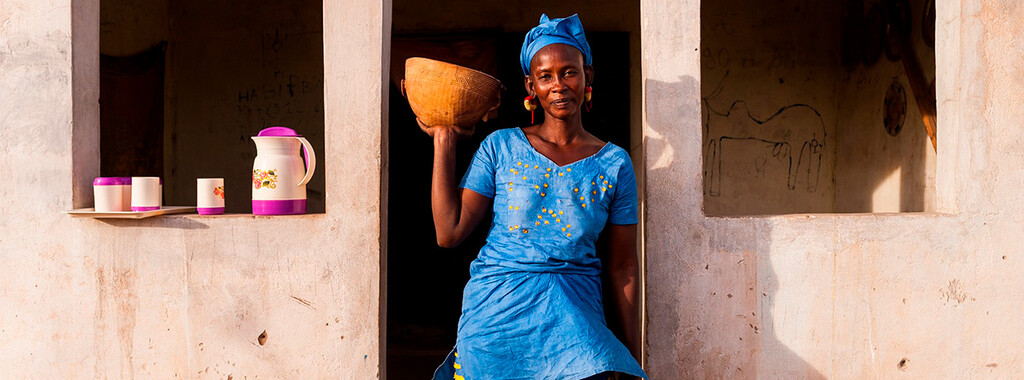Building the economic empowerment of women entrepreneurs in Senegal

Financial empowerment for women entrepreneurs in Senegal
Senegalese women hardly generate any income to support their families. One reason is poor access to credit and other resources. Sioen supports the SOS Faim NGO through Entrepreneurs for Entrepreneurs. It strengthens the skills of female entrepreneurs and gives them access to the necessary resources to increase their income and achieve emancipation.
Fatick is known as one of the most beautiful regions of Senegal, thanks to its wonderful mangroves and islands. But at the same time, it is one of the poorest regions of the West African country. The poverty percentage is as high as 68%.
Women are especially hard hit
Almost the entire population is dependent on agriculture; 2 out of 3 people also work in cattle breeding. But this income has been under pressure for years. Fatick is namely suffering from severe soil salinisation and degradation and regularly encounter water shortages.
Women are particularly affected by these declining revenues. They are generally involved in small-scale livestock farming and agricultural processing, both for domestic use and for sale. But due to the low literacy rate among Senegalese women, they have less access to resources such as land, training, credit or agricultural equipment.
Resources and training
SOS Faim stands for a new approach. "The NGO focuses mainly on a sustainable solution: how do we ensure that the women entrepreneurs are eventually self-reliant and do not need our help?", points out Björn Macauter, general manager at OVO.
"We are working on two tracks. On the one hand, we facilitate access to financing for small family businesses and female entrepreneurs. At the same time, we are strengthening the technical and management skills of 3 000 women through training. In this way, we are helping them to expand their activities - and thus their income."
Impact on women and their families
In order to make resources and training more accessible, SOS Faim works with various partners and associations. "For example, there are close contacts with the associations of goat farmers and cashew nut processors, the two main activities of the women entrepreneurs. There are also partnerships with women's associations and the members of the savings and credit suppliers."
Specifically, 3 000 women entrepreneurs and the families of the 5 000 affiliated members enjoy the positive impact of the project. "Thanks to the support, revenues from agricultural and livestock activities increase."
The focus is explicitly on women. "They spend a large part of their income on health care and education for their families. By giving women entrepreneurs access to credit and other resources, we therefore reach their entire families. Moreover, the women become less dependent on their husbands. Once they are launched and trained in their activities, they work completely autonomously."
Parallel visions
The focus on female emancipation is a perfect match between this project and Sioen. Women play a key role in our organisation, also at management level. The wife and three daughters of the founder, Jean-Jacques Sioen, all hold top positions. Of the total workforce, more than 65% are women. The focus on self-reliance also fits in seamlessly with our vision. Not to score instant hits, but to think ahead in order to achieve a sustainable impact.
SDGs
In 2015, all member states of the United Nations accepted the Sustainable Development Goals (SDGs). These goals are to end poverty, protect the planet and achieve peace and prosperity for all by 2030. As a global industrial player, Sioen also wants to contribute to the realization of these goals.
By supporting this project of SOS Faim, SDG 1 (no poverty), SDG 5 (gender equality) and SDG 8 (decent work and economic growth) are fulfilled.
OVO and SOS Faim
Entrepreneurs for Entrepreneurs, in short OVO, promotes sustainable economic growth in low and middle income countries. How? By supporting local entrepreneurship. After all, OVO is convinced that social and sustainable enterprises are an important motor to increase the standard of living of the local population.
OVO focuses on financing sustainable business initiatives and NGO projects. After all, greater financial strength results in faster growth. In addition, the organisation attaches great importance to knowledge transfer between Belgian companies and entrepreneurs. This can be in the field of business management as well as technical support. To that end, OVO develops an expertise network.
OVO cooperates closely with 7 Belgian NGOs, including SOS Faim. This organisation has been fighting hunger and poverty in rural areas of Africa and Latin America since 1964. Convinced that small farmers can feed the world, it supports family farming on a technical, financial and political level.

